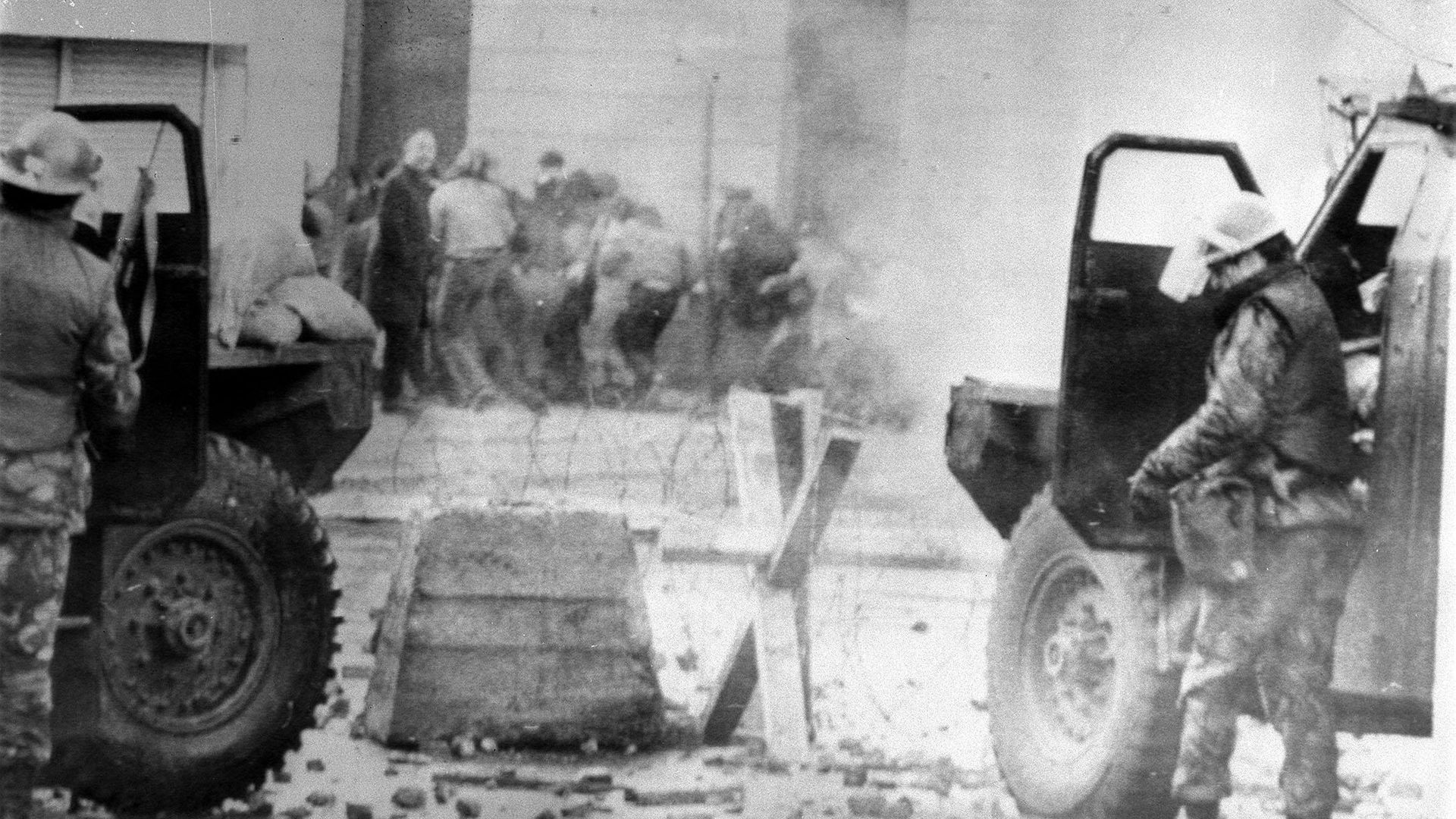Fifteen former soldiers and an alleged IRA member investigated for perjury during the Bloody Sunday Inquiry will not face charges.
Police had previously asked Northern Ireland’s Public Prosecution Service (PPS) to consider a file relating to allegations of murder and attempted murder.
At the time, the PPS said it would also consider if those reported had given false evidence at the inquiry.
In a statement, the PPS said: “The prosecution team has determined that the available evidence is insufficient to provide a reasonable prospect of conviction of any suspect considered.”
Thirteen people were shot dead when members of the Parachute Regiment opened fire during a civil rights march in Londonderry/Derry on 30 January 1972.
One veteran, known only as Soldier F, is currently being prosecuted for two murders and four attempted murders.
A decades-long campaign by the bereaved and injured led to the UK’s longest-running and most costly public inquiry, which published its findings in 2010.
The inquiry found that some soldiers and an alleged former member of the IRA had knowingly given false accounts.
Read more from Sky News:
Painting stolen in Oxford raid found in Romania
Liz Truss’s book in breach of rules
Sunak to remove benefits for people not taking jobs
Keep up with all the latest news from the UK and around the world by following Sky News
Be the first to get Breaking News
Install the Sky News app for free
In a statement, the Bloody Sunday families said they were “very disappointed” by the PPS decision not to pursue perjury charges. But they added they were “certainly not fooled by it.”
John Kelly, whose 17-year-old brother Michael was among the dead, said: “The families of Bloody Sunday who sit here today disappointed and perplexed by this decision not to prosecute a single soldier for perjury ask themselves rhetorically: ‘Why is it that the people of Derry cannot forget the events of Bloody Sunday, yet the Parachute Regiment, who caused all the deaths and injury on that day, apparently cannot recall it’?
“The answer to this question is quite simple but painfully obvious.
“The British Army lied its way through the conflict in the north. Accountability was never an option.”





